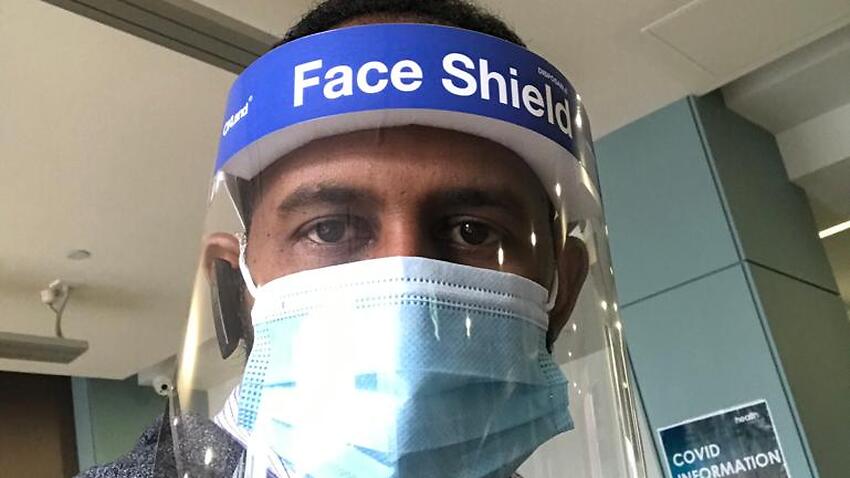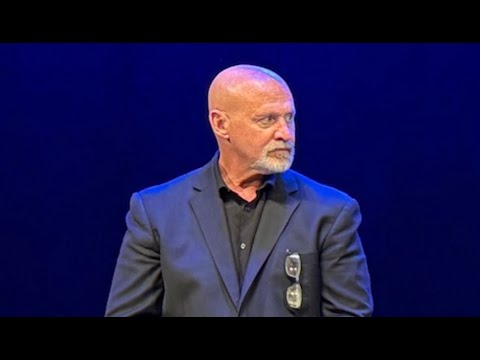When Victorian Premier Daniel Andrews announced the hard lockdown of nine public housing towers in inner Melbourne in July, it sent a wave of fear through the dozens of other public housing towers across the city.
Under the drastic measures, which came as Melbourne’s second wave of coronavirus infections were spiralling out of control, residents weren’t allowed to leave home for any reason and were guarded by hundreds of police.
Osman Ali Mohamed, who lives in a public housing tower in the inner-city suburb of Fitzroy that was unaffected by the lockdown, says the fear in his tower was palpable.
“There was a lot of fear, everyone thought this would be the next step to lock down our towers,” he told SBS News.
The dire scenes at the locked-down towers and the lack of community consultation has given rise to a new initiative to employ residents of the towers to deliver public health messages to their own community.
Run by not-for-profit community health centre Cohealth, the program now employs 84 public housing residents and community members representing more than 10 languages to work as “health concierges”, delivering key information to the community, giving out masks and hand sanitiser, and encouraging hand hygiene and testing.
The announcement comes as the Victorian government has pledged $5.3 billion toward building 12,000 social housing homes throughout Melbourne and regional areas.
The package, to be included in the state’s 2020/21 budget released on 24 November, will deliver 9,300 new homes, as well as the replacement of 1,100 existing public housing units.
Cohealth’s program is stationed at the base of high-rise towers in Kensington, North Melbourne, Flemington, Carlton, Fitzroy, Collingwood and Footscray.
Mr Mohamed is proud to be one of the health concierges for his public housing tower.
“Most of the people who live in these towers have language barriers, they can’t access the internet and didn’t have the opportunity to have the public health information in their language. So that’s why I filled that gap and I knew I was the right person to help my community,” he said.
The response to the program in the community has been overwhelmingly positive, he said, and that has been critical in getting residents to come forward to get tested.
“We have received a very positive response from the residents. They like seeing a familiar face and someone who speaks their language and understands their life. They trust people that are from their community,” Mr Mohamed said.
Nicole Batholomeusz, chief executive officer at Cohealth, told SBS News they had learned from the hard lockdowns of the nine towers about the importance of community buy-in.
“By partnering with community, by employing local people in from the community, they are actually part of the solution … It adds significant value to those communities and it also gives them really direct and clear information to what’s happening and it enables them to be involved as well,” she said.
“Building trust is so important and that person is a known and trusted face in the community”.
The health concierge program, which is being funded in partnership with the Victorian Department of Health and Human Services, also provides job opportunities for people who often face barriers to finding employment due to language, education or discrimination.
The program will remain in place until January and despite the state’s 16-day run of no new coronavirus cases, Ms Batholomeusz said it was still essential to prevent future outbreaks.
“We need to make sure we are continuing all the early intervention measures in place. We might need to continue to do the work until we get a vaccine,” she said.
The Victorian Ombudsman is investigating the public housing tower lockdown and has heard submissions from residents about the hardships they experienced, the lack of basic supplies and medications provided, and the trauma of having such a heavy police presence at their homes.
The Victorian government has consistently defended their handling of the hard lockdowns.
People in Australia must stay at least 1.5 metres away from others. Check your jurisdiction’s restrictions on gathering limits.
If you are experiencing cold or flu symptoms, stay home and arrange a test by calling your doctor or contact the Coronavirus Health Information Hotline on 1800 020 080.
News and information is available in 63 languages at https://sbs.com.au/coronavirus
Please check the relevant guidelines for your state or territory: NSW,Victoria, Queensland, Western Australia, South Australia, Northern Territory, ACT, Tasmania







